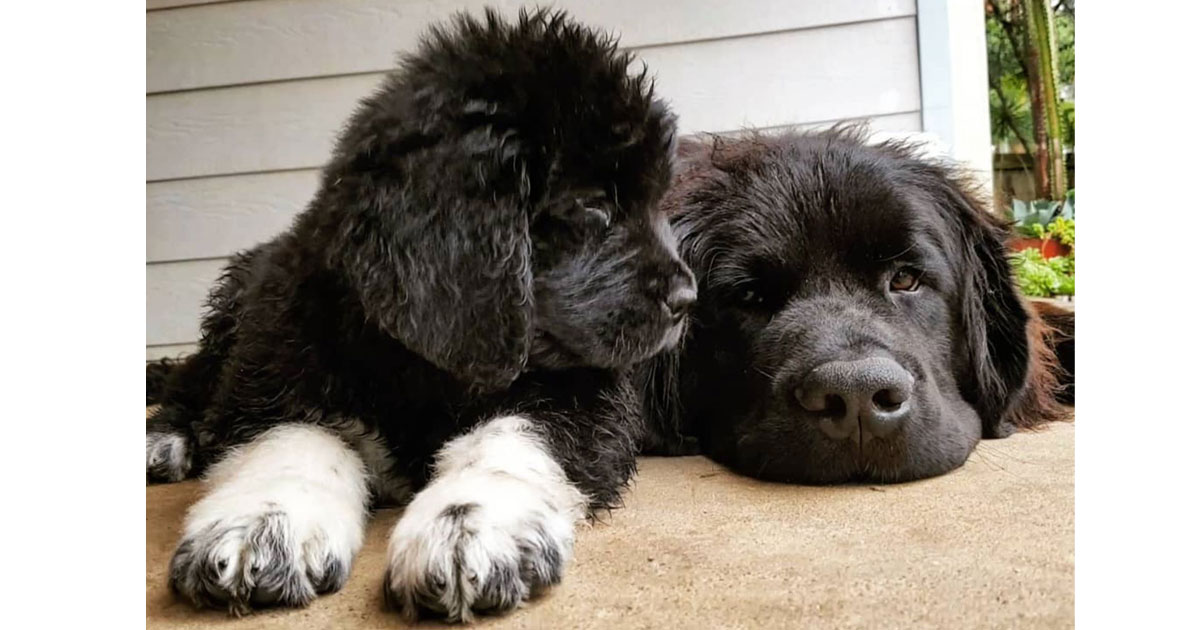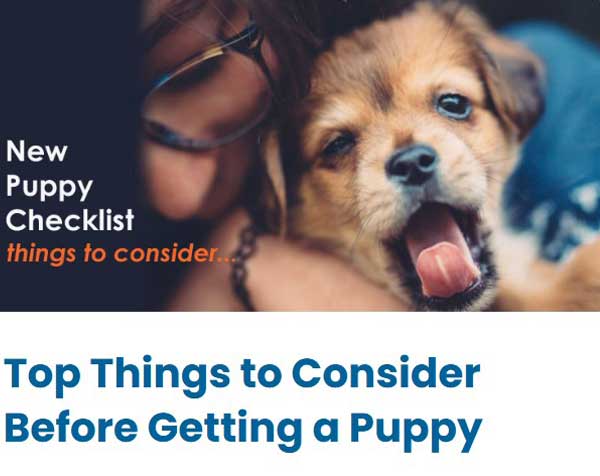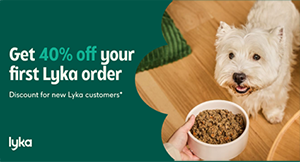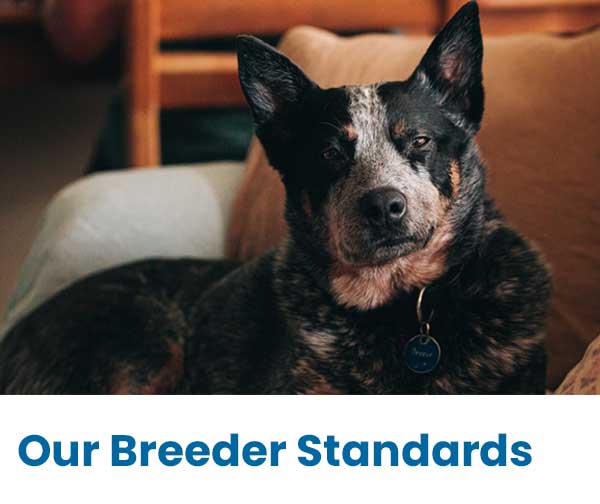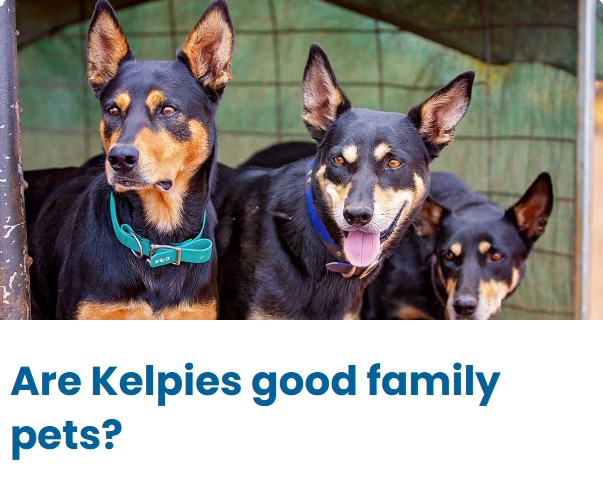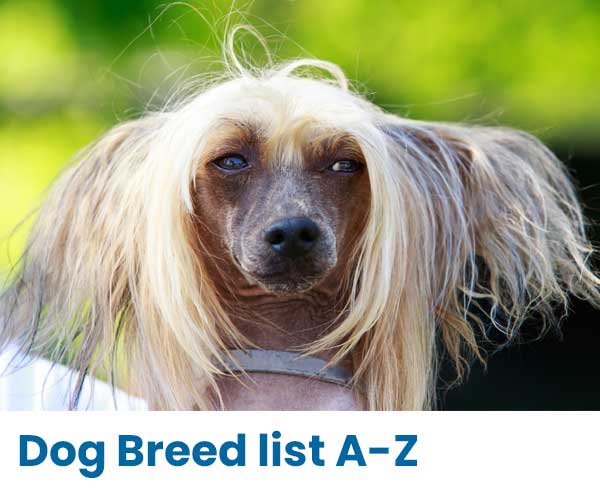Newfoundland breed guide
The Newfoundland is a massive, bear like dog, with a medium coat. They are a powerful dog that loves to swim, and are well known for their gentle nature and natural life saving instincts. A newfie needs company, human or canine as he sees himself as part of the family and can become destructive if left alone. This is not a breed to be kept outside alone. The colours are black, brown, white & black (lovingly called Landseer, not to be confused with the Landseer (ECT) breed). Solid colours can have small amounts of white on tips of toes, chest and tip of tail.
Newfoundland temperament
The Newfoundland’s sweet disposition is the hallmark of the breed. Breed standard states that sweetness of temperament is the most important single characteristic and any sign of poor temperament cannot be tolerated. It is calm, intelligent and loving, but that’s not to say that these big, furry giants can’t be a handful. Obedience training is a must from an early age, as an undisciplined mass of fur and drool can do a lot of damage. It is an extremely social dog and must be treated as part of the family. Left in its own company for too long these dogs can become depressed and destructive. Although they possess a strong guardian instinct, the Newfoundland is a companion dog, not a guard dog.
Newfoundland History
The Newfoundlands origins are in Newfoundland in Canada, primarily as a fisherman's dog where they were used to haul fishing nets due to their immense strength. The breed has been noted in history back as far as the 1700's.
Potential health issues in Newfoundlands
There are a number of potential health issues, some can be negated by carefully selecting a breeder who tests for and does not breed from affected dogs. Some health issues can be minimised by careful rearing, conservative management of activity during the first 12 months, a nutrient dense diet, minimising stress and providing an all round healthy environment for your dog.
The non negotiable tests that every breeder should be doing on their breeding dogs are:
- Echocardiogram Heart testing by a registered Vet Cardiologist
- Hip & Elbow Xrays of both parents
- DNA Cystenuria
Some breeders will do Echocardiogram testing on their puppies, this is a very good option especially in these times when frozen semen or use of old lines is common and the father may not have had any heart testing.
What sort of owners or homes are Newfoundlands best suited to?
This is a companion breed, that thrives on having a close bond with its family. Owners with time to spend with their dog, time to commit to training, grooming and those who have the level of understanding, patience and commitment required to nurture this breed to its full potential. Newfoundlands excel in all areas with experienced dog owners who have mastered the skill of connecting with a dog and can foster a strong bond of mutual respect.
Are Newfoundlands good with small children, people they don't know, cats, small animals, and other dogs?
Yes they can be. Provided they are in a loving and supportive environment and have been trained and guided on how to behave towards others. They will be excellent, probably the best dog you have ever had, if you are prepared to put in the work.
Are there any types of homes, lifestyles, or situations that don't suit Newfoundlands?
- Yes: Owners who want a dog to live outside with little human contact.
- Apartment living with no indoor outdoor access or stairs as the only access.
- Long periods of time spent alone while the owner works.
- A dog to be company for other dogs because as an owner you cant be there.
- First time dog owners. If you think this is an easy dog to start with, think again.
How much exercise do Newfoundlands require?
The first 12 months while they grow into their body and joints develop should be all about carefully managing exercise, no jumping off things, or running up and down stairs.
Instead free range exercise, low impact activity and swimming provide minimal stress to joints. Running or playing should be on grass and not hard surfaces, street walking is discouraged. Running and rough play with other dogs is also detrimental to the growing skeleton and is a strongly discouraged activity.
An average of 1 minute of exercise per week of age daily is a good guide. As this is a powerful working breed, a structurally sound mature dog, when well conditioned to regular exercise can manage a 5km walk daily, on a grassed surface.
Recreational swimming is the very best form of exercise, so start them young. Always consider the weather conditions and never exercise your dog in the heat, some may not cope with temperatures over 20 degrees. Terrain also needs to be considered. Don't exercise on concrete or other surfaces where high impact on the joint will cause damage.
Do Newfoundlands suffer from any health issues and what sort of testing is recommended?
There are a number of potential health issues, some can be negated by carefully selecting a breeder who tests for and does not breed from affected dogs. Some health issues can be minimised by careful rearing, conservative management of activity during the first 12 months, a nutrient dense diet, minimising stress and providing an all round healthy environment for your dog.
The non negotiable tests that every breeder should be doing on their breeding dogs are:
- Echocardiogram Heart testing by a registered Vet Cardiologist
- Hip & Elbow Xrays of both parents
- DNA Cystenuria
Some breeders will do Echocardiogram testing on their puppies, this is a very good option especially in these times when frozen semen or use of old lines is common and the father may not have had any heart testing.
Do Newfoundlands tend to be expensive in terms of veterinary care?
Vet bills are very expensive, and prevention is better than cure - always. Diagnostics can run into thousands before any diagnosis can be made by a vet, then veterinary costs can easily run into many thousands of dollars more. Any surgical procedure, especially orthopaedic surgery can cost many thousands.
How does a lack of exercise and mental stimulation manifest in Newfoundlands?
Lack of exercise for some dogs isn't such an issue, some can be lazy if not in an active home. No exercise of any kind will mean the dog is unfit, its muscles are weak and the dog will likely be fat. This scenario, as with humans, will then manifest in structural issues, difficulty getting up, lack of motivation, stiff joints and general lack of vibrancy.
This breed is very intelligent, it has a large thinking brain, so a lack of mental stimulation will create boredom issues, depression, being bossy and demanding, destructive behaviour, constant barking, hammering on your door to get in if left outside and you are inside, making their own fun like digging up your garden or ripping palings off your fence or boards off your house, jumping or climbing fences to escape to find fun and companionship elsewhere. Basically everything opposite to what the breed should be. The lack of companionship and human company is the soul destroyer for this breed.
Do Newfoundlands have any special dietary needs?
Newfoundlands should be fed a nutrient dense diet, with careful attention during the first 12 months. A puppy that is fed too much and grows too quickly, will outgrow its structure if it gets heavy, it may get very leggy and the muscles may not be sufficient to hold its frame together well. This is when injuries can occur, particularly during the first 8 months of its life.
Keeping them lean is very important, excess weight causes strain on the joints.
Do Newfoundlands have special grooming requirements?
YES most certainly. Regular brushing or combing is important to maintain a healthy coat and healthy skin. A myriad of grooming combs, strippers, scissors and brushes are essential so is a dog drier or blaster. An area set up at home, inside or preferably outside to bath your dog is a very good idea. Understanding and knowing how to manage the copious amounts of hair is something to be understood prior to embarking on the breed. A professional groomer can be very helpful but every owner should be able to groom their dog, as its a daily requirement to keep the coat under control for the well being and comfort of the dog.
Is there anything else that is important for people to know about Newfoundlands?
- Having a supportive breeder who will give sound advice on good nutrition and care for the whole of life is essential.
- Getting amongst the breed is also important. Meeting the dogs in many different environments, getting your hands on them and feeling how powerful they are. Taking them for a walk and understanding how to manage a dog of this size.
- Knowing where your puppy has come from, how they were raised, that the parents were health tested and their pedigrees and that of the puppy is registered with ANKC is a good start in knowing that your puppy has been bred responsibly.
- Exercise is important to any dog but this is not a breed that thrives on being exercised, it's a breed that enjoys the company of its people. They love to go on adventures and to swim and explore interesting places, but first and foremost they thrive on human companionship, company and mutual respect.
- Being with them and training and conditioning them to become the breed you read about in the brochure is the responsibility of the owner. Its important to take time and care to introduce a new puppy to all new experiences, comfort them and make them feel secure. A good temperament is so important in this breed, personalities vary but the temperament should be soft and sweet.
- Newfoundlands are an intelligent breed, some can have a high prey drive and others can be quite lazy. It's important to know that the puppy you are getting will match with your lifestyle and personality.
Special thanks to Kim Bell - Baywatch Newfoundlands - for help with these Newfoundland FAQ's.
References:
Photo Credits:
Thanks to Kim Langsworth for photos of Moses, and #odonewf_kodabear
If you are a small scale ANKC registered breeder and would like to be listed here, just contact us or follow a few simple steps to add your details yourself.
We welcome helpful comments and contributions to information about this breed by email

